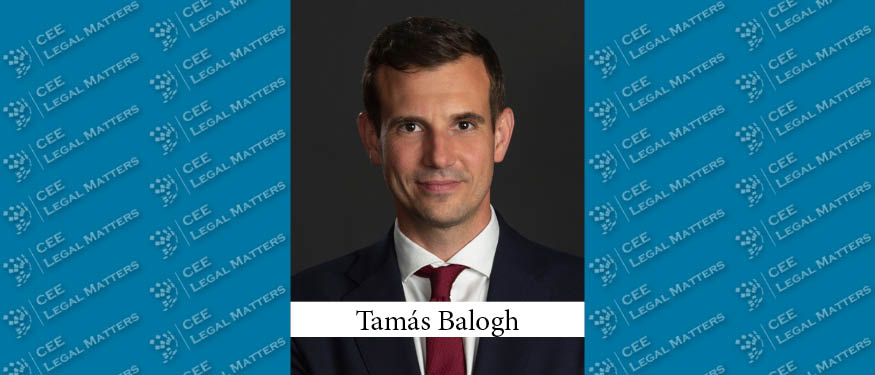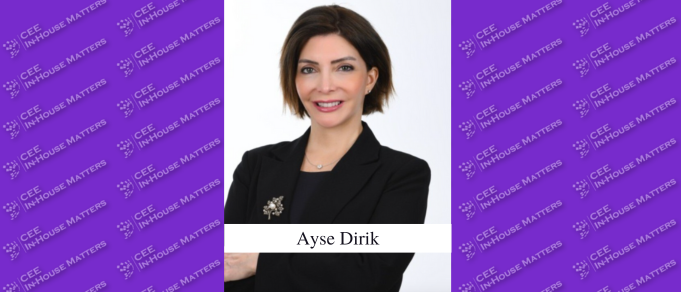In “The Corner Office” we ask Managing Partners at law firms across Central and Eastern Europe about their backgrounds, strategies, and responsibilities. The question this time: Who was your favorite professor in university and why?
My favorite professor at university was Professor Elemer Polay, teaching Roman Law at the University of Szeged. The professor possessed immense knowledge of the law, and he was a very well-educated intellectual. He spoke and published in several languages: Hungarian, German, French, English, Spanish, and Latin. I would also add the language of students to his know-how – the way he thought us was exceptional and his warm, clever, and elegant personality shined through everything he did. And he did a lot, besides teaching and publishing over 140 publications, he organized the first congress on Roman Law in Hungary and was a speaker or participant at many other conferences. If he was teaching these days, he’d probably have a series of podcasts, and he’d deliver a Ted Talk. We were his last Roman Law class, he died a year later.
Gabor Kiraly, Managing Partner, Dentons Hungary
In the 80s when I was a law student at ELTE University, there was a professor whose lectures were always full, no matter how big the auditorium was and there was no need for an attendance sheet. He caught and kept the attention of all students, teaching in a way that one could understand Civil Law in its complexity and remember his words after the lectures right away.
As he was a visiting professor at the University of Heidelberg, he opened a window for us to the western legal systems and took us, within the framework of the Scientific Students’ Association, to study trips to Germany and even to the US. At a time when traveling was not possible for all, we could meet with western law students and professors and learn about their legal systems.
His name is Professor Emeritus Lajos Vekas, the author of 19 books in Hungarian, English, and German on Private Law and Private International Law, a member of the Academia Europaea, and Vice-President of the Hungarian Academy of Sciences, who took a leading role in the democratic transformation of the Hungarian legal system after the collapse of the communist regimes.
Apart from his eternal merits in the field of law, he had such a wonderful and captivating personality and elegant humor and attitude towards the students that made him outstanding and he stuck in my memory forever.
Peter Lakatos, Managing Partner, Lakatos, Koves & Partners
It is funny – I had two favorite professors at the Law Faculty of the Sofia University – a Senior Professor teaching Commercial Law and a Junior Professor teaching Constitutional Law – and they both became Prime Ministers of Bulgaria after my graduation. But as I need to pick one, I will pick Professor Georgi Bliznashki.
At the time he was a Junior Professor (teaching Constitutional Law and Parliamentarian Law) and he was deeply involved in academic research and we became soul-mates on these matters. The Parliamentarian Law exam was on January 10, 1997 – the date on which, later on during the day after our exam was over the Bulgarian Parliament was attacked by a crowd and, as a result, Bulgaria changed its course towards NATO and EU memberships. My professor used to say: “There will come a time when you will be proud with my signature on your student’s books!” Despite his cockiness (he later became an MP, European MP, Prime Minister, and Senior Professor), he was one of my favorite professors due to his deep academic focus and willingness to give guidance to young lawyers. He still keeps publishing great academic books and refers to my publications from the time when I was his student.
Kostadin Sirleshtov, Managing Partner, CMS Bulgaria
Ralph Reisner was my professor of Banking Law and Regulations at Northwestern University in Chicago, during my LLM program in 1997-1998. In addition to being an encyclopedic personality, he was very curious about how young people like me, coming from outside the United States, saw the world and this always led to very interesting discussions. He had a good understanding not only of the law, but also of business and economics, and generally of how the world worked. He became a mentor for me. He gave me priceless career advice at times when I needed it most. I would not be where I am today but for the insights he shared with me at several crucial junctures. He remains my friend to this day, 25 years later, and I try to visit with him and his wonderful wife, Danute, as often as I can when traveling to California, where they reside.
Marian Dinu, Country Managing Partner, DLA Piper Romania
The teacher who had the biggest influence on me and on my career was Tamas Sarkozy. I was attending the third year of university, in economics, though I did not feel that my economics studies fully engaged my mind. And this was the time when I came across the lectures of professor Sarkozy.
He was one of the most prominent legal theorists of that period – as an example, he was the author of the very first Companies Act in Hungary. On the other hand, as a professor, he could convey his legal knowledge to university students in a very colorful manner. His lectures were hilarious – the auditorium was full all the time. He always brought up various anecdotes to support his message. One, for instance, when he wished to emphasize the importance of definitions in legal documents, he shared his experience in Thailand. He signed up for a “massage” – but instead of getting pleasure via young girls, he got a full two-hour Thai massage which he hardly survived. On another occasion, when talking about shareholders’ rights, he shared his experience in Germany as a youngster: He regularly bought shares of those public companies which had their general meeting the next day. He filled up his belly each time with the quality food served at such meetings and then sold the shares the day after.
He was the professor who pushed me to start my legal curriculum, in parallel to my economics studies. Without him, I would not even be a lawyer. The only sad element of the story is that he is no longer with us and currently he entertains only the angels with his large knowledge and unbeatable humor.
Pal Jalsovszky, Managing Partner, Jalsovszky Law Firm
My favorite professor at university was Helen Hartnell. She is an American law professor who taught several courses at CEU and one at ELTE to help us prepare for the very first Willem Vis Arbitration Moot competition held in 1993/94. At that time, three students enrolled for this course but only two of them actually started to attend the courses and prepared the written briefs. First, we had to file a statement of claim, and about two months later a statement of defense. Another approximately two or three months later came the preparation for the oral hearing that was held in Vienna. Suddenly, the third student, who had not participated in the course until that point, also appeared. Helen was ballsy enough to not let him take part only in the “more fun part” of the moot without having contributed to the sweaty groundwork. (We won second place in the competition for the best-written brief!)
Kinga Hetenyi, Managing Partner, Schoenherr Hungary
I am grateful to my university teacher, Ion Traian Stefanescu, who unfortunately is no longer with us, because of his ability to make his class not only exciting but also memorable, being able to find the joy in teaching, while remaining enthusiastic about every topic of the law, making me excited to attend and learn every day. Coming to class and witnessing his passion to teach inspired me to seek the same kind of passion in my career, emphasizing the importance of honesty and integrity, as well as the cruciality of good moral standards. He was more than just an inspiration, he was a mentor who taught me the importance of education and balance in order to succeed. He was a personality that I admired and I will probably always remember.
Octavian Popescu, Partner, Popescu & Asociatii
This article was written before the advent of the war in Ukraine and was originally published in Issue 9.2 of the CEE Legal Matters Magazine on March 1, 2022. More current articles on developments in Ukraine can be found in our #StandWithUkraine section. If you would like to receive a hard copy of the magazine, you can subscribe here.

















